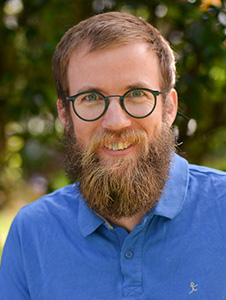A programme launched to address a serious rural workforce shortage has helped fill the void, but there is still work to be done, a new University of Otago-led study shows.
The Rural Hospital Medicine Training Programme (RHMTP) was started in 2008 in response to the workforce shortage and the lack of any training programme for rural hospital doctors. The vocational training programme is administered by the Division of Rural Hospital Medicine and the academic component is largely provided by the University of Otago.

Dr Rory Miller.
The study assessing the programme's effectiveness is the first of its kind; there have been studies on where undergraduate medical students intend to practice medicine, but no New Zealand research on where doctors who have completed specialty training actually practice.
Study co-author Dr Rory Miller, of the Department of General Practice and Rural Health, Dunedin School of Medicine, says the research coincided with the end of the first ten years of the programme.
"Rural hospitals differ from metropolitan hospitals in that they are generally smaller and staffed with generalist doctors and nurses that provide emergency, inpatient and in many cases primary care or general practice services for their community.
"There is growing international evidence about the critical role that well and appropriately trained medical practitioners play in maximising equity of care and opportunity for rural communities. Broad skills and an understanding of the rural New Zealand context are required, which is not covered in any other single speciality training programme."
Of the 29 graduates in the first decade of the programme, 85 per cent are currently practicing in rural areas, mostly in rural hospitals. Nearly half - 46 per cent - also finished a GP or emergency medicine training programme.
While those results are encouraging, Dr Miller says there is still room for improvement.
"While this these results show that the training programme is producing doctors that then go and work in rural New Zealand, the results highlight that they are not spread evenly across New Zealand, with many graduates clustered in the South Island.
"Many rural hospitals, some serving communities with the greatest health needs are not yet benefitting from the programme."
Graduates reported they appreciated the flexibility of the programme, but access to funding was identified by a number of doctors who completed, or withdrew from the programme, especially during rural hospital and general practice attachments, he says.
"A solution that reaches across the two tiers of the health system - primary care and hospital care - is required.
"We also recommended that the governance structure in which the division of rural hospital medicine New Zealand operates is reviewed and general practice, rural hospital medicine training is recognised formally as a dual pathway and streamlined."
The diversity of trainees, and support for more Māori to enter and graduate the programme also needs attention.
The RHMTP provides just part of the solution to building rural workforce capacity, Dr Miller says.
"The critical role of other health professionals, particularly nurses, both in rural hospitals and other rural health services must be acknowledged. All rural health professional should be supported to develop training and continuing-education pathways that meet their needs."
The study was published in the New Zealand Medical Journal.






